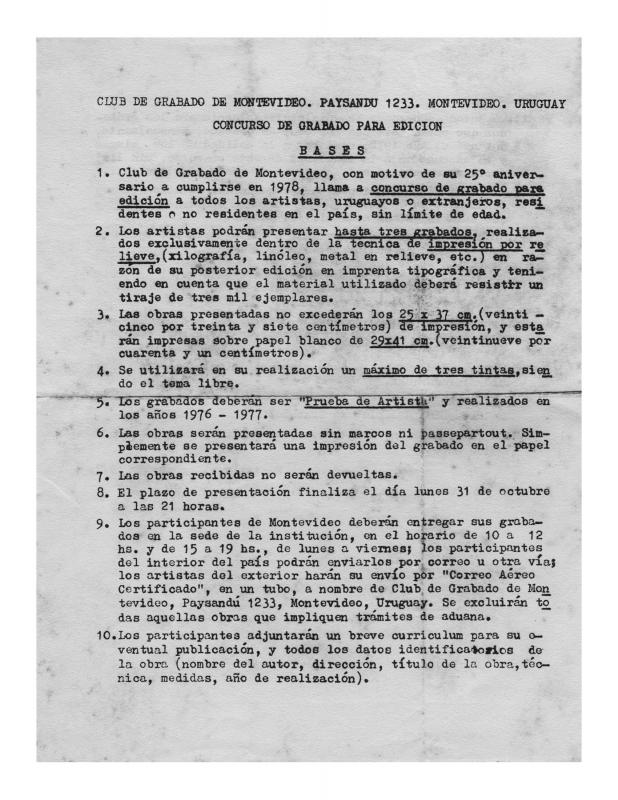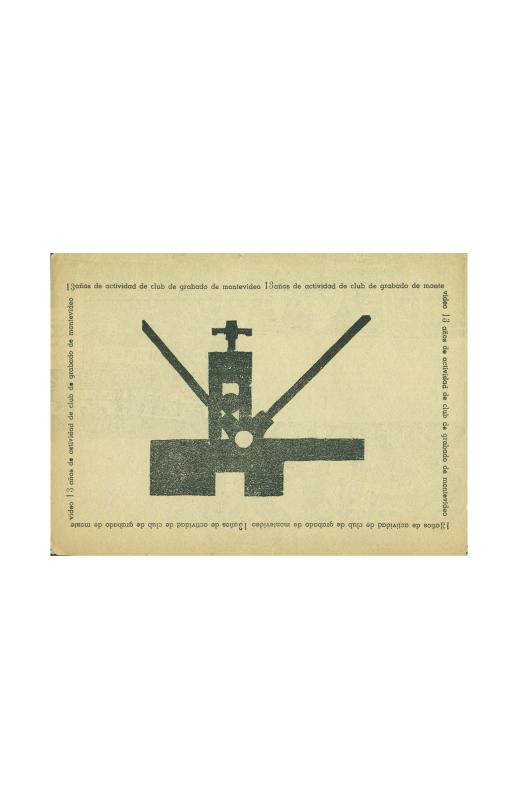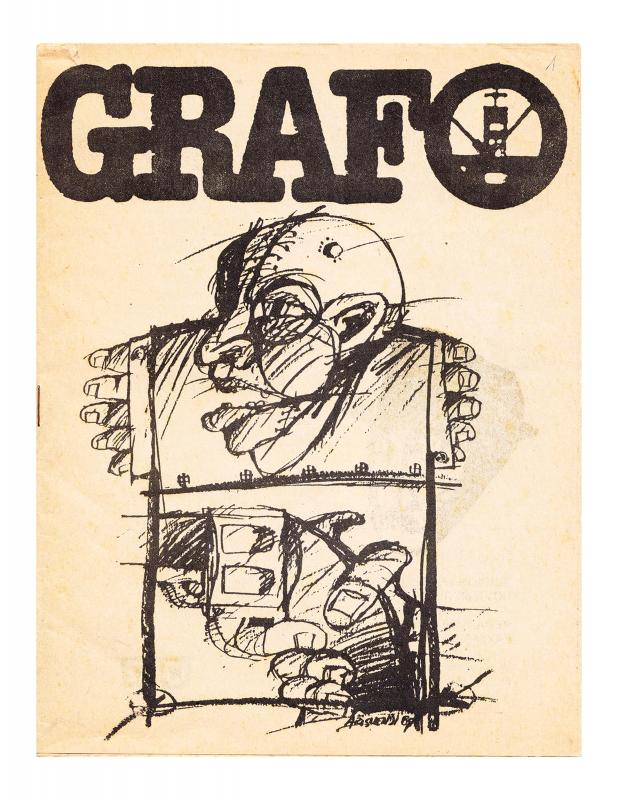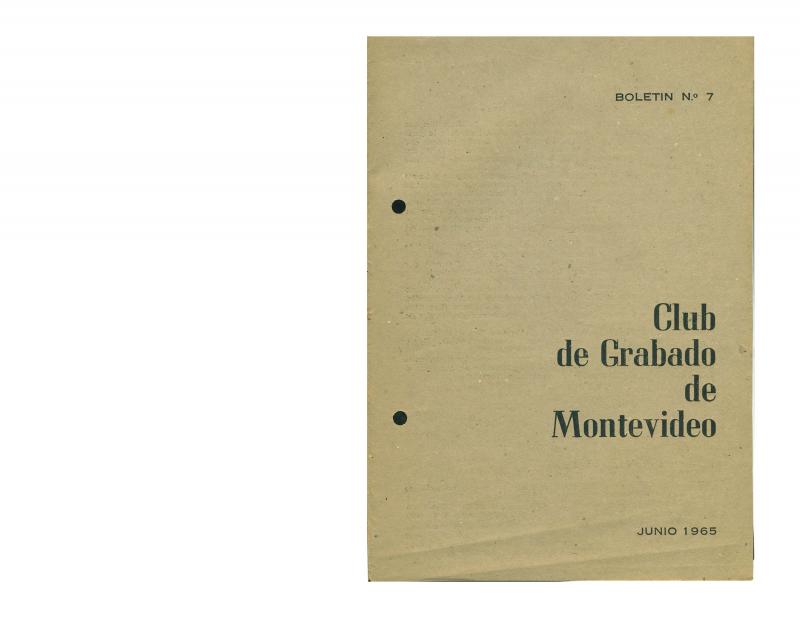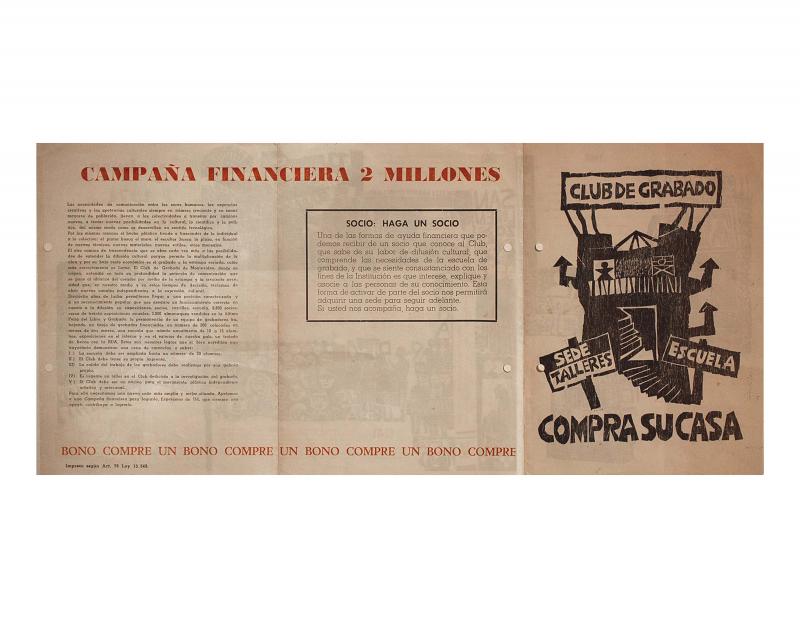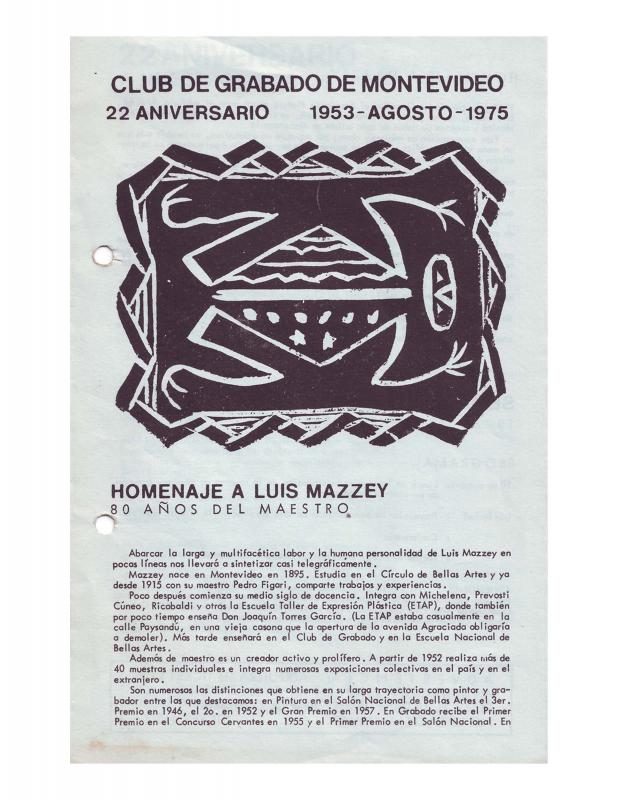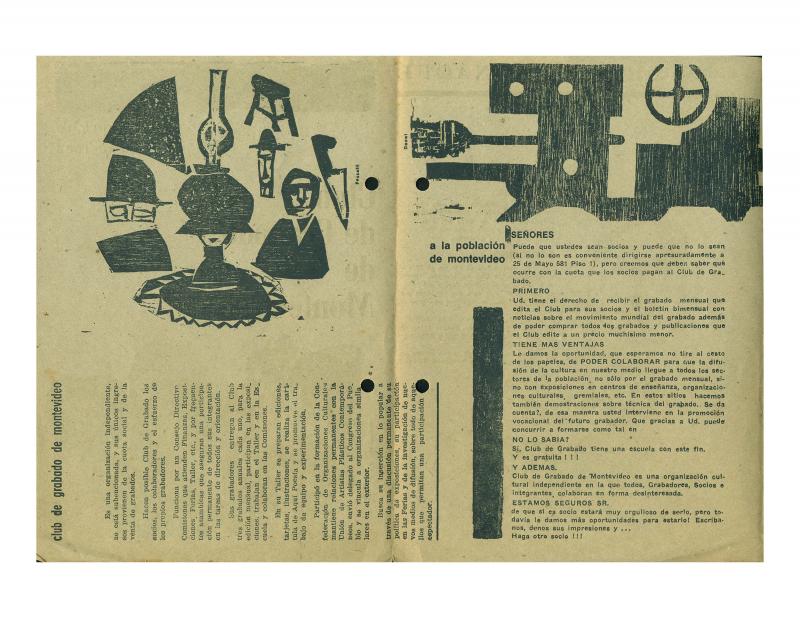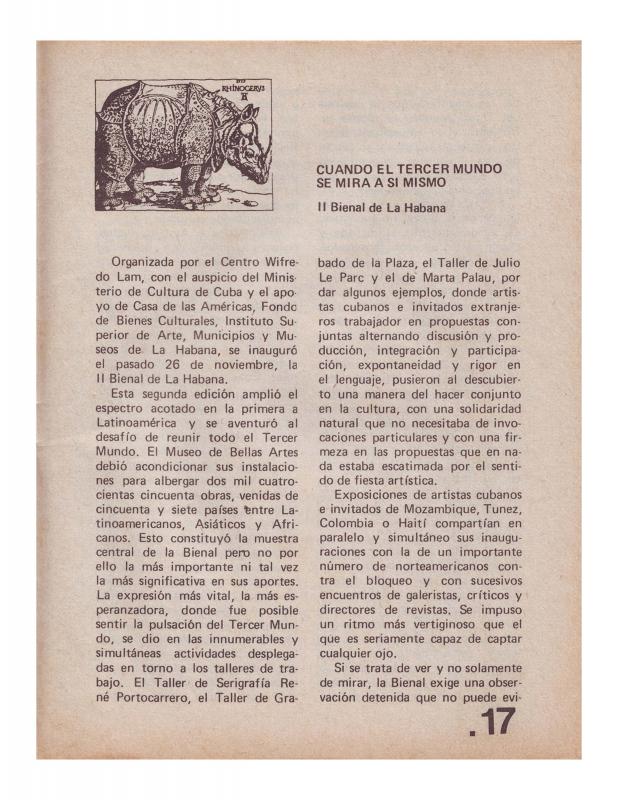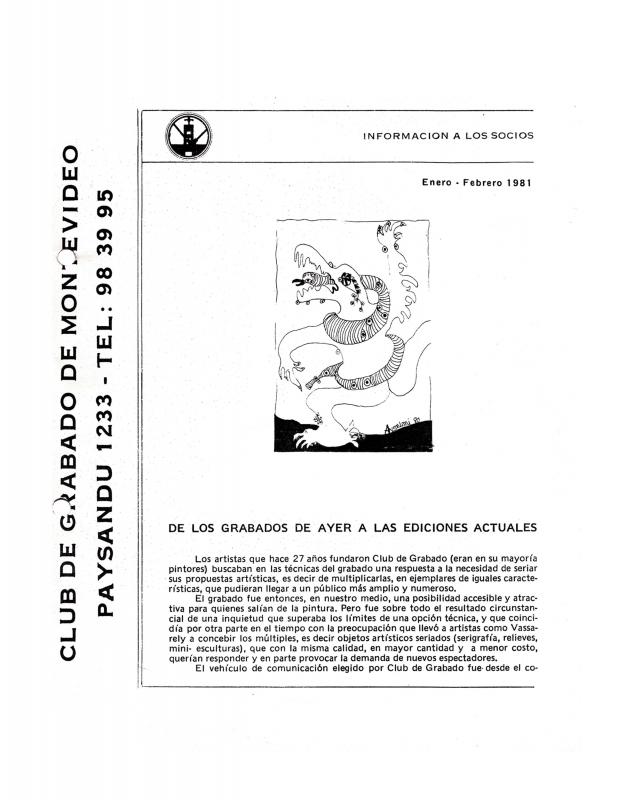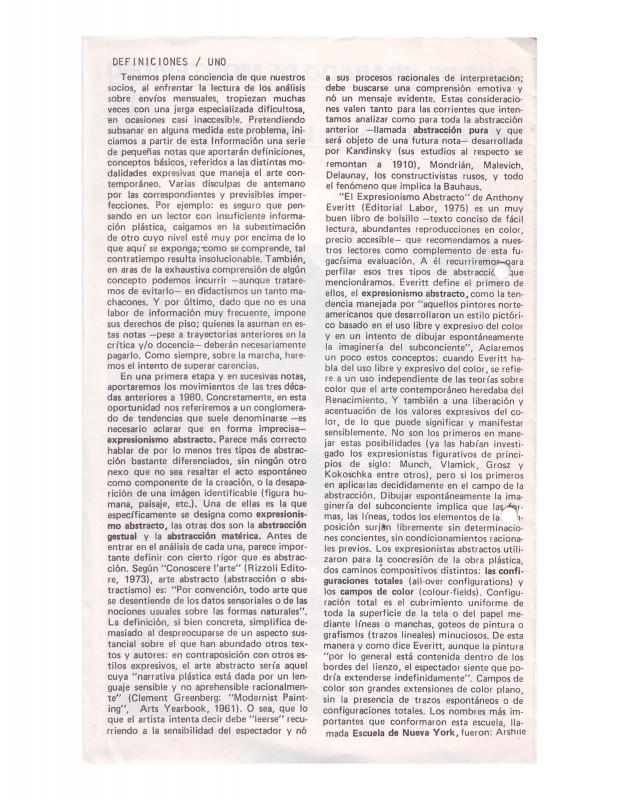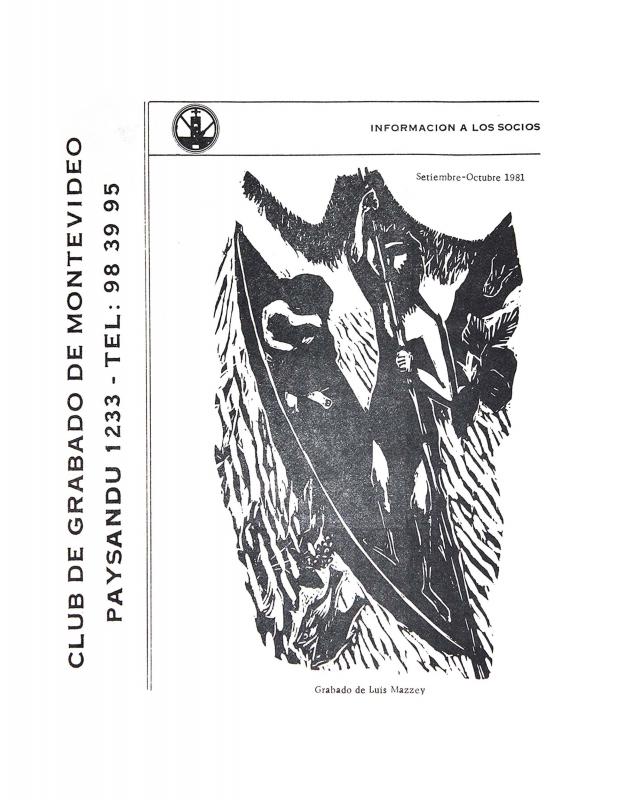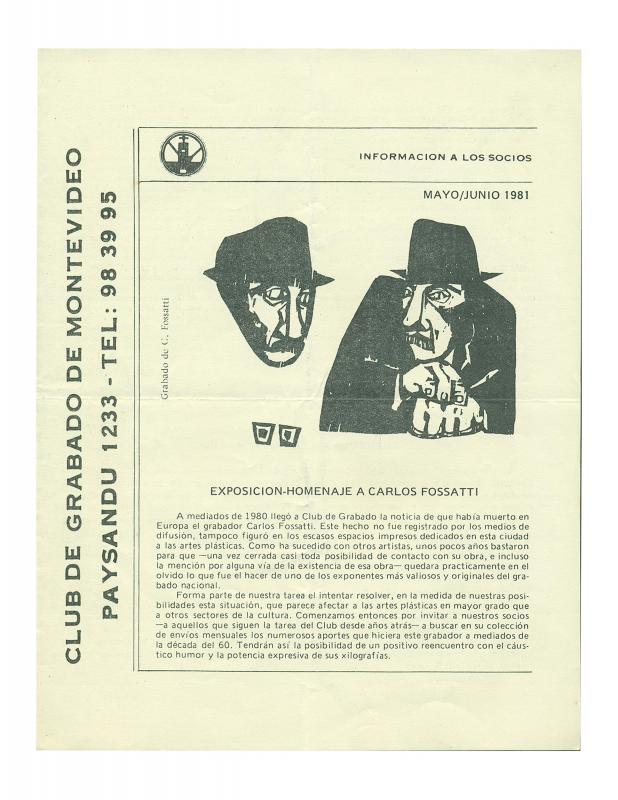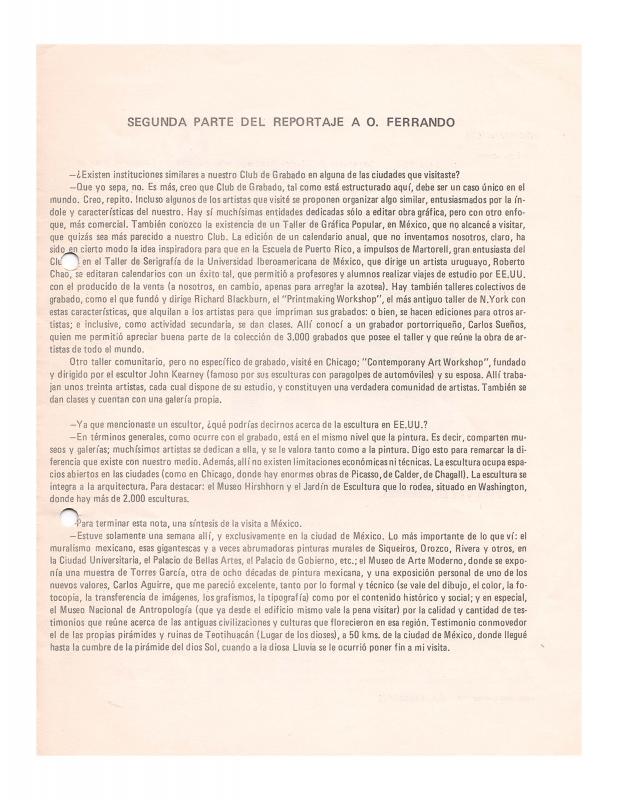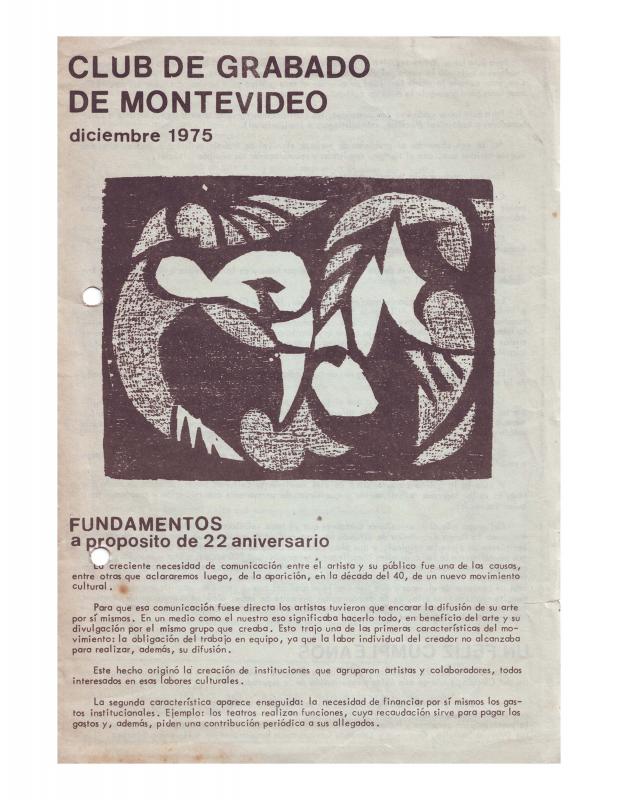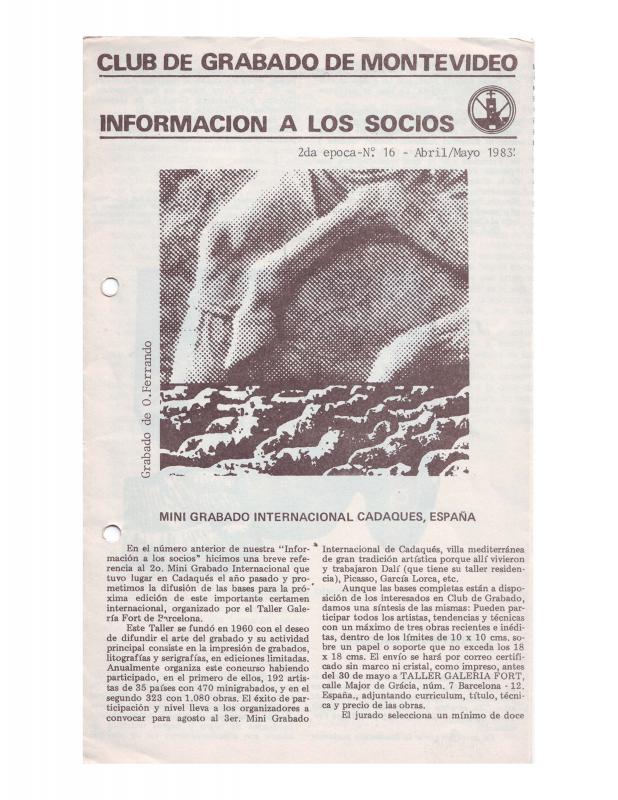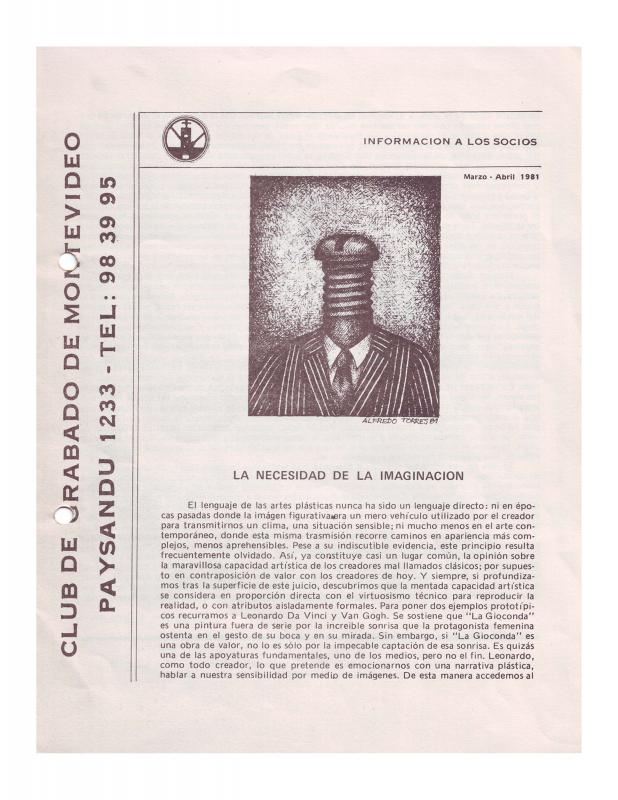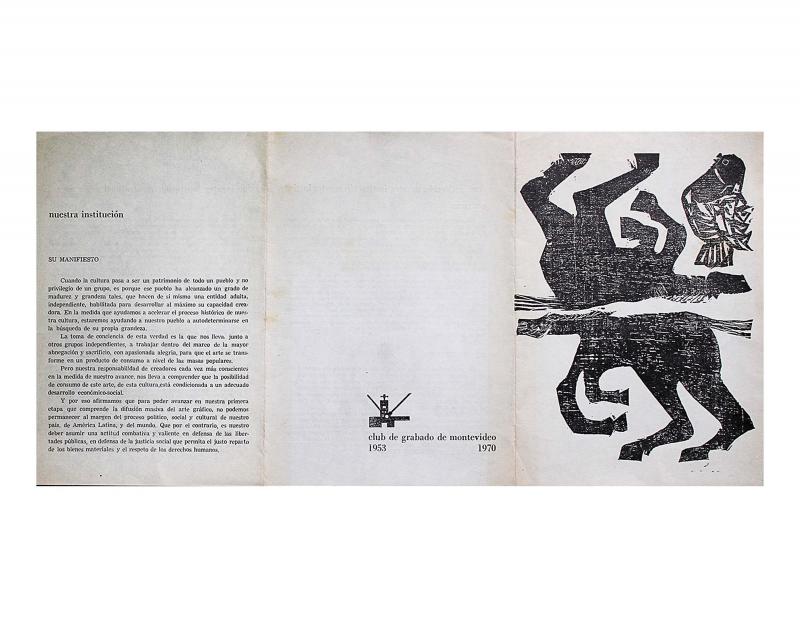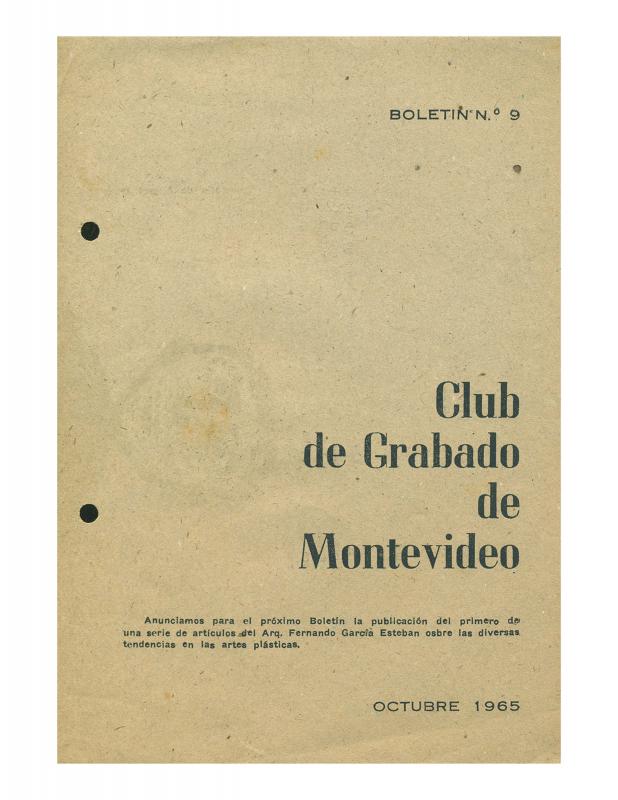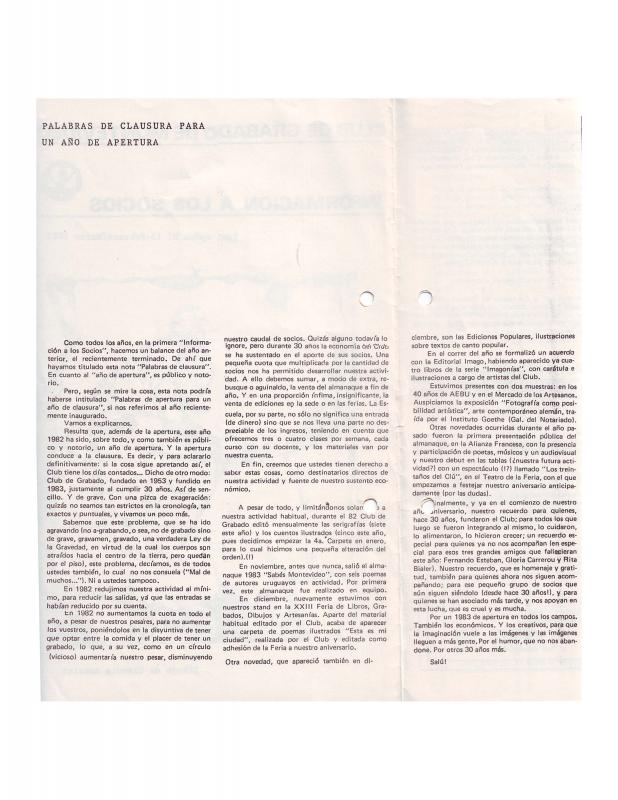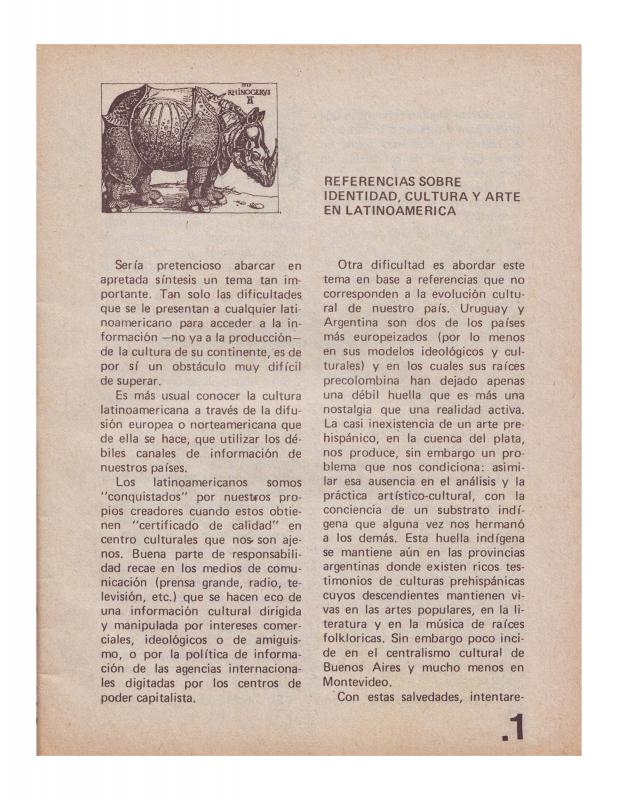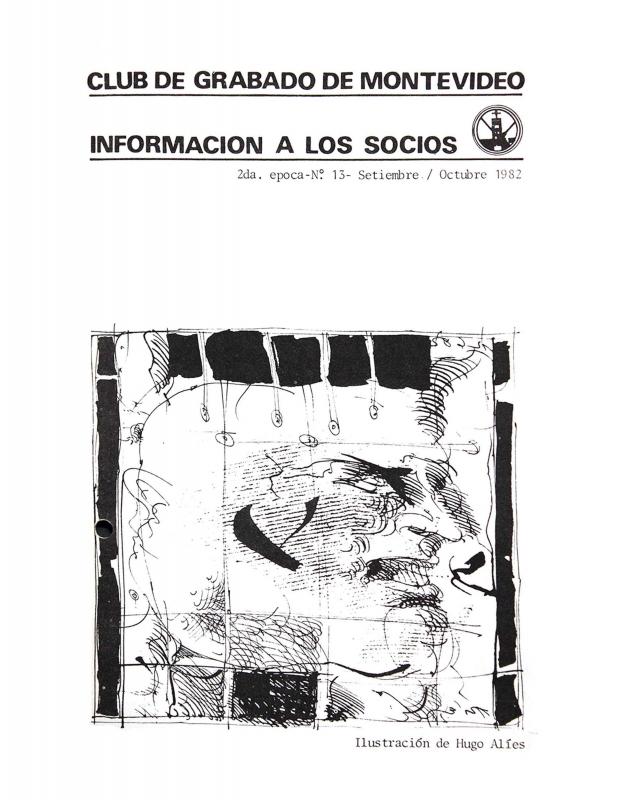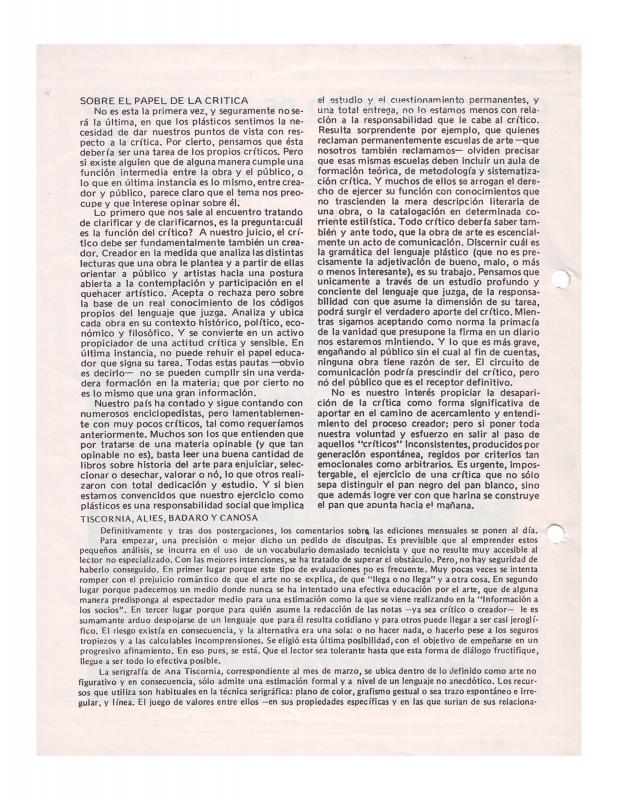This article was written at a time of profound changes for the CGM (Club de Grabado de Montevideo), one of the only institutions devoted to art instruction and practice that managed to survive the dictatorship and maintain its program of work and theoretical discussion. Membership dropped to its lowest point during those years, a direct result of the changes in the nature of the CGM’s graphic production and the inhibiting influence of the coup d’état of 1973.
The 1980s ushered in the so-called “Second Period” of the CGM’s newsletter, the Boletines del Club de Grabado de Montevideo. The author explains that contemporary art was facing a serious crisis at the time, noting that it had lost its sense of social commitment and lost sight of its objectives, basing his views on pronouncements made by Herbert Read (1893–1968). He refers to Read’s article “The Symptoms of Decadence,” which appeared in his book To Hell with Culture (London: Routledge, 1963), as the basis for his view that art was in a state of crisis brought about by a mood of indifference, boredom, and cynicism that had created a distance between artists and the public. Though Read made his observations in the 1960s, the author of this article sees connections and parallels in the current situation, pointing to radical changes in sensibilities that are not limited to one particular continent, and a widespread apathy with increasingly ontological overtones, in which the essential nature of art is just one of the symptoms.
[As complementary reading see, in the ICAA digital archive, the following articles published by the Club de Grabado de Montevideo: “Concurso de grabado para edición” (doc. no. 863481); “13 años de actividad de Club de Grabado de Montevideo” (doc. no. 1183571); “El arte correo en el Uruguay” (doc. no. 1191850); “Boletín N° 7 Club de Grabado de Montevideo” (doc. no. 1182833); “Club de Grabado compra su casa” (doc. no. 1192649); “Club de Grabado de Montevideo 22 Aniversario 1953 - Agosto 1975” (doc. no. 1183514); “Club de Grabado de Montevideo a la población de Montevideo” (doc. no. 1183124); “Cuando el Tercer Mundo se mira a sí mismo. II Bienal de La Habana” (doc. no. 1184459); “De los grabados de ayer a las ediciones actuales” (doc. no. 1191787); “Definiciones / Uno” (doc. no. 1189065); “Entrevista a Luis Mazzey” (doc. no. 1186991); “Entrevista a Óscar Ferrando” (doc. no. 1186747); “Entrevista a Óscar Ferrando [segunda parte]” (doc. no. 1186802); “Fundamentos a propósito de su 22 aniversario” (doc. no. 1182640); “Mini Grabado Internacional de Cadaqués. España” (doc. no. 1191135); “La necesidad de la imaginación” (doc. no. 1190793); “Nuestra institución” (doc. no. 1182010); “Los nuevos movimientos de las artes” (doc. no. 1182868); “Palabras de clausura para un año de apertura” (doc. no. 1191167); “Referencias sobre identidad, cultura y arte en Latinoamérica” (doc. no. 1183641); “Reflexiones en torno a la supuesta crisis de las artes plásticas” (doc. no. 1185539); and “Sobre el papel de la crítica” (doc. no. 1187071)].

